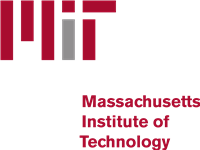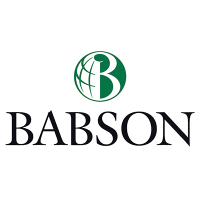What do they do?
Communicate and coordinate with management, shareholders, customers, and employees to address sustainability issues. Enact or oversee a corporate sustainability strategy.
Also known as:
Chief Sustainability Officer (CSO), Corporate Sustainability Process Manager, CSR and Sustainability VP (Corporate Social Responsibility and Sustainability Vice President), Energy and Sustainability Manager, Sustainability Chancellor, Sustainability Chief, Sustainability Director, Sustainability Initiatives Vice President (Sustainability Initiatives VP), Sustainability Manager, Sustainability Programs Director, Sustainable Design Director
-
-9.2%
Change
Ranks #51 in job growth rate370Job Openings
Ranks #16 in net job growth
-
Babson College
Wellesley, MA
-
Massachusetts Institute of Technology
Cambridge, MA
-
Northwestern University
Evanston, IL
-
University of Chicago
Chicago, IL
-
University of Notre Dame
Notre Dame, IN
Looking for colleges that offer a specific major? Use the College Match Tool to find your best-matched schools and discover your estimated Net Price!
- Doctorate or Professional Degree (7%)
- Master's degree (25%)
- Bachelor's degree (40%)
- Associate's degree (5%)
- Some college, no degree (14%)
- High school diploma equivalent (8%)
- Less than high school diploma (2%)
Most Popular Majors that prepare Chief Sustainability Officers
-
#1
-
Degrees Granted
311,165
-
Female Students
154,898
-
Male Students
156,267
-
Median Starting Salary
$39,500
-
-
#2
-
Degrees Granted
53,014
-
Female Students
26,722
-
Male Students
26,292
-
Median Starting Salary
$48,168
-
-
#3
-
Degrees Granted
47,093
-
Female Students
13,776
-
Male Students
33,317
-
Median Starting Salary
$39,100
-
-
#4
-
Degrees Granted
23,201
-
Female Students
9,445
-
Male Students
13,756
-
Median Starting Salary
$57,200
-
-
#5
-
Degrees Granted
15,721
-
Female Students
9,272
-
Male Students
6,449
-
Median Starting Salary
$40,900
-
People in this career often have these skills:
- Writing - Communicating effectively in writing as appropriate for the needs of the audience.
- Critical Thinking - Using logic and reasoning to identify the strengths and weaknesses of alternative solutions, conclusions, or approaches to problems.
- Reading Comprehension - Understanding written sentences and paragraphs in work-related documents.
- Active Listening - Giving full attention to what other people are saying, taking time to understand the points being made, asking questions as appropriate, and not interrupting at inappropriate times.
- Speaking - Talking to others to convey information effectively.
- Complex Problem Solving - Identifying complex problems and reviewing related information to develop and evaluate options and implement solutions.
- Social Perceptiveness - Being aware of others' reactions and understanding why they react as they do.
- Persuasion - Persuading others to change their minds or behavior.
- Judgment and Decision Making - Considering the relative costs and benefits of potential actions to choose the most appropriate one.
- Systems Analysis - Determining how a system should work and how changes in conditions, operations, and the environment will affect outcomes.
- Systems Evaluation - Identifying measures or indicators of system performance and the actions needed to improve or correct performance, relative to the goals of the system.
- Active Learning - Understanding the implications of new information for both current and future problem-solving and decision-making.
- Monitoring - Monitoring/Assessing performance of yourself, other individuals, or organizations to make improvements or take corrective action.
- Coordination - Adjusting actions in relation to others' actions.
- Learning Strategies - Selecting and using training/instructional methods and procedures appropriate for the situation when learning or teaching new things.
- Time Management - Managing one's own time and the time of others.
People in this career often know a lot about:
- English Language - Knowledge of the structure and content of the English language including the meaning and spelling of words, rules of composition, and grammar.
- Administration and Management - Knowledge of business and management principles involved in strategic planning, resource allocation, human resources modeling, leadership technique, production methods, and coordination of people and resources.
- Law and Government - Knowledge of laws, legal codes, court procedures, precedents, government regulations, executive orders, agency rules, and the democratic political process.
- Communications and Media - Knowledge of media production, communication, and dissemination techniques and methods. This includes alternative ways to inform and entertain via written, oral, and visual media.
- Building and Construction - Knowledge of materials, methods, and the tools involved in the construction or repair of houses, buildings, or other structures such as highways and roads.
- Customer and Personal Service - Knowledge of principles and processes for providing customer and personal services. This includes customer needs assessment, meeting quality standards for services, and evaluation of customer satisfaction.
- Education and Training - Knowledge of principles and methods for curriculum and training design, teaching and instruction for individuals and groups, and the measurement of training effects.
People in this career often have talent in:
- Written Expression - The ability to communicate information and ideas in writing so others will understand.
- Oral Comprehension - The ability to listen to and understand information and ideas presented through spoken words and sentences.
- Written Comprehension - The ability to read and understand information and ideas presented in writing.
- Oral Expression - The ability to communicate information and ideas in speaking so others will understand.
- Speech Recognition - The ability to identify and understand the speech of another person.
- Speech Clarity - The ability to speak clearly so others can understand you.
- Fluency of Ideas - The ability to come up with a number of ideas about a topic (the number of ideas is important, not their quality, correctness, or creativity).
- Originality - The ability to come up with unusual or clever ideas about a given topic or situation, or to develop creative ways to solve a problem.
- Problem Sensitivity - The ability to tell when something is wrong or is likely to go wrong. It does not involve solving the problem, only recognizing that there is a problem.
- Deductive Reasoning - The ability to apply general rules to specific problems to produce answers that make sense.
- Inductive Reasoning - The ability to combine pieces of information to form general rules or conclusions (includes finding a relationship among seemingly unrelated events).
- Information Ordering - The ability to arrange things or actions in a certain order or pattern according to a specific rule or set of rules (e.g., patterns of numbers, letters, words, pictures, mathematical operations).
People in this career often do these activities:
- Evaluate program effectiveness.
- Implement organizational process or policy changes.
- Develop sustainable organizational policies or practices.
- Manage control system activities in organizations.
- Supervise workers performing environmentally sustainable activities.
- Prepare operational progress or status reports.
- Present sustainable products or services information to the public.
- Develop marketing plans or strategies for environmental initiatives.
- Manage outreach activities.
- Identify opportunities for green initiatives.
- Schedule activities or facility use.
- Maintain operational records for green energy processes or other environmentally-sustainable activities.
- Identify environmental concerns.
- Direct organizational operations, projects, or services.
- Analyze data to determine project feasibility.
- Evaluate environmental or sustainability projects.
- Develop procedures to evaluate organizational activities.
- Evaluate green operations or programs for compliance with standards or regulations.
- Prepare financial documents, reports, or budgets.
- Prepare proposals or grant applications to obtain project funding.
- Evaluate capabilities or training needs.
- Support the professional development of others.
- Analyze risks related to investments in green technology.
This page includes data from:

 Occupation statistics: USDOL U.S. Bureau of Labor Statistics Occupational Employment Statistics
Occupation statistics: USDOL U.S. Bureau of Labor Statistics Occupational Employment Statistics









